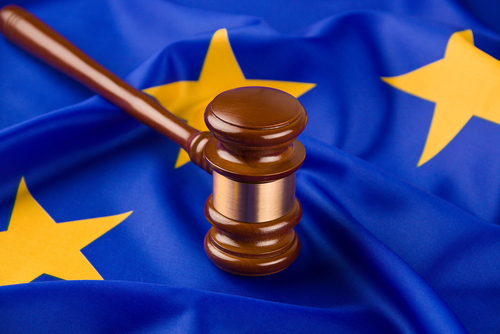EU Court To Reconsider Intel Antitrust Fine

Nearly a decade later…Europe’s highest court to take a second look at the billion euro fine against Intel in 2009
The European Court of Justice (ECJ), is to take a second look at the huge antitrust fine levied against Intel.
Intel was stung with the €1.06 billion (£972m) antitrust fine by the European Commission (EC) way back in 2009, after officials accused Intel of abusing its market position.
The officials alleged eight years ago that Intel had engaged in “illegal anticompetitive practices to exclude competitors from the market for computer chips”.
Ruling Background
The EC based its case on complaints – in 2000, 2003 and 2006 – from rival chip-maker AMD. It said that Intel “interfered directly in the relations between computer manufacturers and AMD”.
EC officials concluded in 2009 that Intel’s alleged illegal activity took two forms.
Firstly Intel gave rebates to computer vendors on the condition that they bought their x86 processors from the chip maker and made direct payments to one major retailer on the condition that only stocked PCs with Intel chips. The EC also claimed that Intel made payments to computer makers to delay the release of products using alternative x86 processors.
But Intel protested and filed an appeal in 2012, arguing that the antitrust arm of the European Union had failed to prove that the giant chip maker unlawfully hindered AMD’s abilities to do business, and that the fine – the largest ever levied by the commission (at that time) – was “manifestly disproportionate” with other fines levied by the EC.
Intel did have an ally in the EC’s ombudsman, who in November 2009 criticised the commission for improperly recording a meeting with a Dell executive during the course of its investigation. The ombudsman accused the European regulators of “maladministration.”
It is worth remembering that AMD had settled its own legal dispute with Intel in November 2009. Intel paid AMD $1.25 billion (£772m) and agreed to a set of business practice provisions.But in 2014 Intel lost an appeal with the European General Court, which prompted Intel to state at the time that “we are very disappointed with the decision.”
ECJ Decision
And now the ECJ has ruled that Intel’s antitrust fine should get a second look. This could result in the fine either being reduced, or dismissed altogether.
Importantly, the ECJ has not overturned the original ruling, yet Intel is likely to take heart at the decision.
In a statement on Wednesday, the Court of Justice was quoted as saying that a lower court would have to “examine, in the light of the arguments put forward by Intel, whether the rebates at issue are capable of restricting competition.”
“This decision is the right one for business, consumers, and E.U. antitrust law and policy,” Dave Anderson, an antitrust partner in the Brussels office of the law firm Berwin Leighton Paisner told the New York Times. “Exclusivity rebates are no longer considered in the EU as inherently anticompetitive.”
“The bottom line for Intel,” Anderson added, “is that Intel lives to fight another day.”
“We welcome today’s landmark ruling,” Steven R. Rodgers, Intel’s general counsel, reportedly said. “While this case concerns events that happened more than a decade ago, we have always believed that our actions were lawful and did not harm competition. We look forward to the next step in this process.”